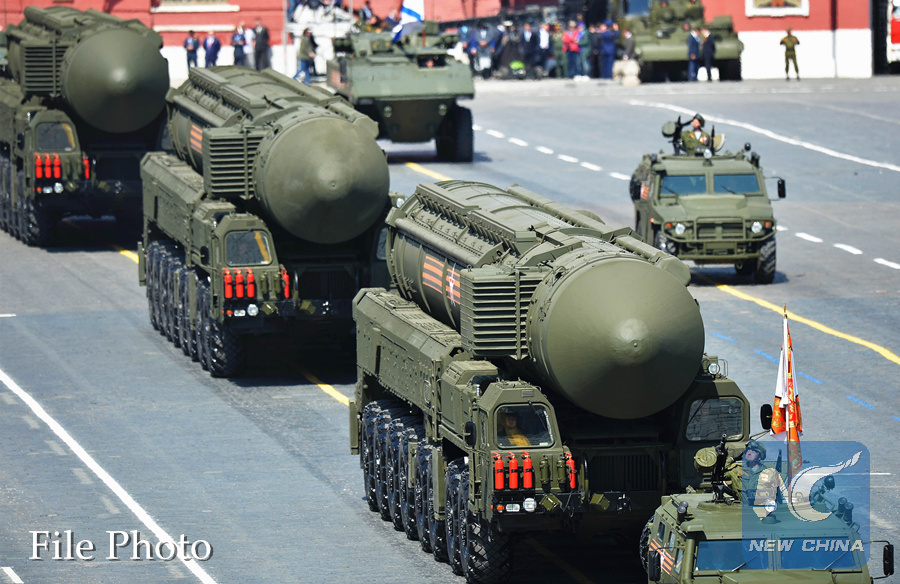
A Russian Yars RS-24 intercontinental ballistic missile system drives during the Victory Day military parade in Moscow on May 9, 2015. (AFP PHOTO)
MOSCOW, April 4 (Xinhua) -- Russian Deputy Foreign Minister Alexander Grushko denied Thursday NATO's accusations that Moscow has deployed nuclear-capable missiles in Europe in violation of the Intermediate-Range Nuclear Forces Treaty (INF).
"There is no evidence that Russia allegedly violated the INF Treaty and we were not presented with such despite our persistent appeals to the United States to provide facts," TASS news agency quoted Grushko as saying.
On Wednesday, NATO Secretary General Jens Stoltenberg said in an address to the U.S. Congress that Russia has violated the INF treaty by deploying mobile, hard-to-detect nuclear-capable missiles in Europe.
Grushko noted that Russia has taken "unprecedented transparency measures" to prove it has not violated the treaty, while NATO ignored Moscow's legitimate concerns regarding many years of violations of the treaty by the United States.
He said that the United States is deploying in Romania and Poland installations capable of launching nuclear-capable missiles, using intermediate-range missiles for testing missile defenses, creating a whole class of drones with strike weapons, as well as starting to produce an entire class of weapons capable of carrying out the functions of nuclear weapons, he added.
These are real factors that increase the risk of any conflict escalating into a nuclear phase, said Grushko.
Russia reserves the right to give a military-technical response, however, wishing to maintain peace in Europe, it will not deploy intermediate-range missiles in Europe and elsewhere until U.S. missiles appear there, according to the diplomat.
Russia, in line with its military strategy, may take the decision to use its nuclear weapons outside the nuclear context only in one case when "the very existence of the state is threatened," he said.

